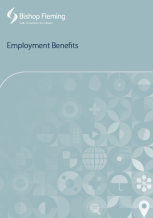Payrolling of Employee Benefits
HM Revenue & Customs (HMRC) is encouraging employers to consider payrolling the taxable benefits they provide for their employees. You need to register before next April.
The advantage of this is that the benefits are reported during the year with tax being collected at source on these.
This then means that there is no change to their PAYE tax code (which determines how much tax is withheld at source via payroll) and so the amount they are taking home should be the correct amount.
When operated correctly, payrolling benefits can lead to administrative efficiencies for employers as you will no longer need to complete P11Ds for each employee.
However, you need to make sure that the rules are applied correctly as otherwise this can lead to a greater amount of administration to sort out the issue.
(Please note that HMRC has announced that it will become mandatory for employers to report all employee benefits through payroll from 6 April 2026.)
What benefits can be payrolled?
You can payroll all benefits except for employer-provided accommodation and beneficial loans (interest free or low interest loans). If you have these benefits, you can still register to payroll any other benefits, but P11Ds will need to be completed to report the accommodation and beneficial loan benefits.
It is open to employers to decide which benefits to payroll. It is also possible to exclude particular employees, so the system is flexible.
As mentioned above, if you decide to payroll all employee benefits, you will not need to prepare P11Ds at the end of the year. In addition, where company cars are payrolled, no P46(Car) is required to be filed.
A form P11d(B) is still required in order to calculate and pay the Class 1A national insurance due.
How do I register?
To payroll benefits, you need to register with HMRC before the start of the next tax year with details of the benefits you wish to payroll.
To use this method for the 2024/25 tax year, you’ll therefore need to register online before 6 April 2024.
Once the tax year has started, you can only deregister at the end of the tax year.
We would recommend that you check that the payroll software you use is suitable before registering.
You can register online here
What happens next?
Once you have registered you will need to give written notification to your employees, so they are aware their benefits are being taxed through the payroll.
The employer works out what the yearly benefit is, divides this by the number of pay periods in the year and this amount is taxed each week/month. If there are any changes to the benefit amount throughout the year, the weekly/monthly amount can be adjusted.
At the end of the tax year the employer will need to work out the total value of the benefits provided in the tax year and the associated Class 1A National Insurance liability.
They will also need to complete and submit form P11D(b) by 6 July following the tax year end.
What are possible complications?
On registration of the scheme, HMRC should remove the value of the benefit from the affected employees’ PAYE code, otherwise double deduction will occur. Therefore, to ensure this does not happen, we would advise that you register with HMRC in good time prior to the start of the tax year in order to ensure any adjustments take place.
PAYE rules state that employers cannot deduct more than 50% of an employee’s pay in tax. Therefore, if an employee’s pay decreases significantly (i.e. sick leave or maternity/paternity leave), this may mean it is no longer appropriate to payroll the benefit.
You may not know the value of the benefit to be payrolled at the start of the year. In this case, a reasonable estimate can be used at the start of the year. This would need to be adjusted once the exact value is known.
Benefit changes during the year can also lead to complications due to having to recalculate the value of the benefit for the employee. This is based on the date of change and can lead to PAYE failures and communication issues with employees due to a misunderstanding of how this works.
Benefits covered by Optional remuneration agreements can also be problematic as you need to understand the value of the benefit to be used (i.e., the higher of the salary foregone or the cash equivalent of the benefit). Care will need to be taken here.
Informal Payrolling of Benefits
HMRC has previously confirmed that, from 6 April 2023, it will no longer be accepting any new informal payrolling benefit arrangements.
Previously, if you missed the deadline for registering to payroll benefits, you could apply to HMRC to informally payroll your employees’ benefits. This option is no longer be available from the start of the 2023/24 tax year.
Also, any employers who have an existing informal payrolling arrangement in place must look to formalise their agreement and register with HMRC as soon as possible.
Further information
If you want any further information on payrolling benefits, please contact your normal Bishop Fleming contact or a member of the Employer Solutions team.





